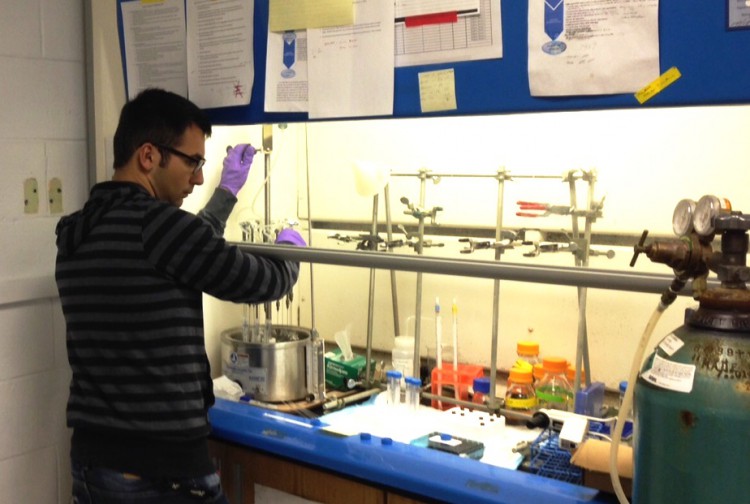A PhD candidate from the French Research Institute for Exploitation of the Sea (IFREMER), Francesco Pisapia, is visiting the NCCOS Center for Coastal Fisheries and Habitat Research (CCFHR) for eleven weeks of intensive training on the method and technique of cytotoxicity assays to detect ciguatoxins (CTXs) and maitotoxins (MTXs) in fish tissue and cell cultures. CCFHR scientists are providing method development instruction on sample extraction, assay set-up, mammalian and algal cell culture, data analysis and instrumentation set-up, and troubleshooting for this assay. The information provided will help our French counterparts implement these methods in collaborative support and monitoring of ciguatoxins in field collected samples. In return, IFREMER will provide knowledge on fractionation and analytical methods using High Performance Liquid Chromatography (HPLC) to help CCFHR to identify Caribbean ciguatoxin congeners implicated in causing ciguatera fish poisoning (CFP).

CTX-producing algae have been a recurrent problem in overseas regions of France (Caribbean, Indian and Pacific Ocean) and have recently been reported in the Mediterranean region. Researchers from IFREMER and NCCOS are collaborating on astudy of CFP-related algae with the aim of developing a better understanding of growth and toxin production in these organisms, as well as identifying toxin congeners for Caribbean species of Gambierdiscus using advanced analytical methods.
For more information contact Dr. Wayne Litaker or Chris Holland.
